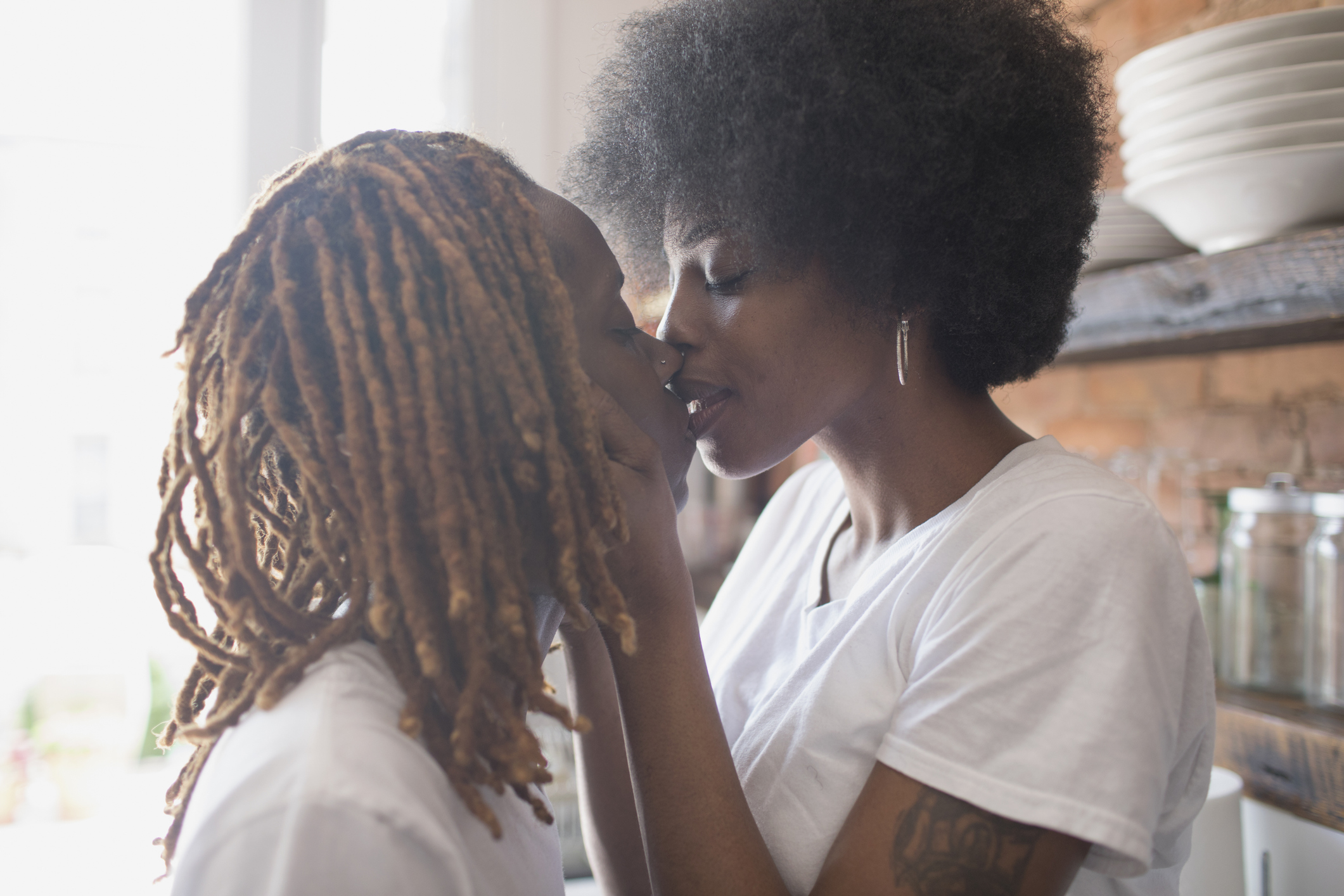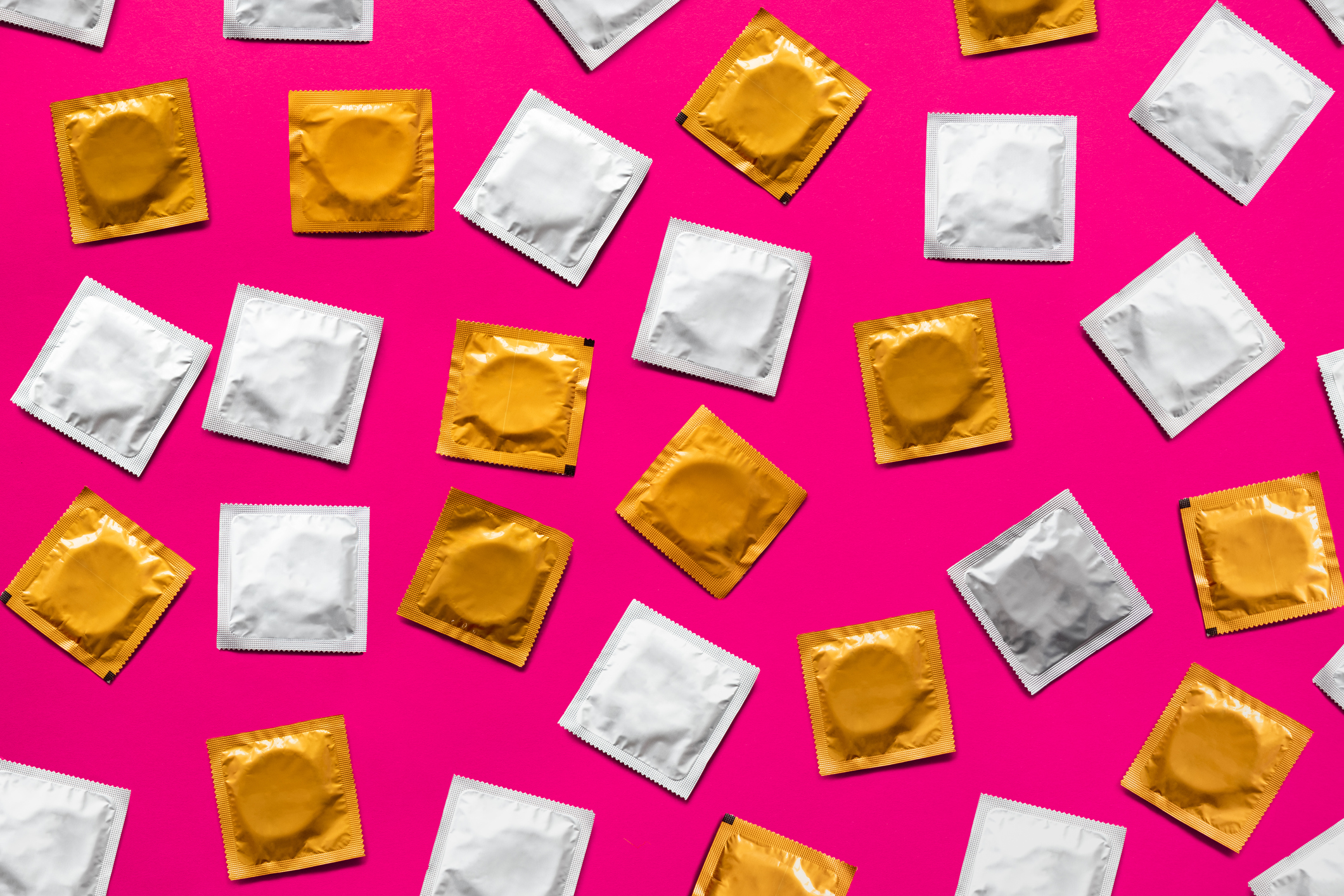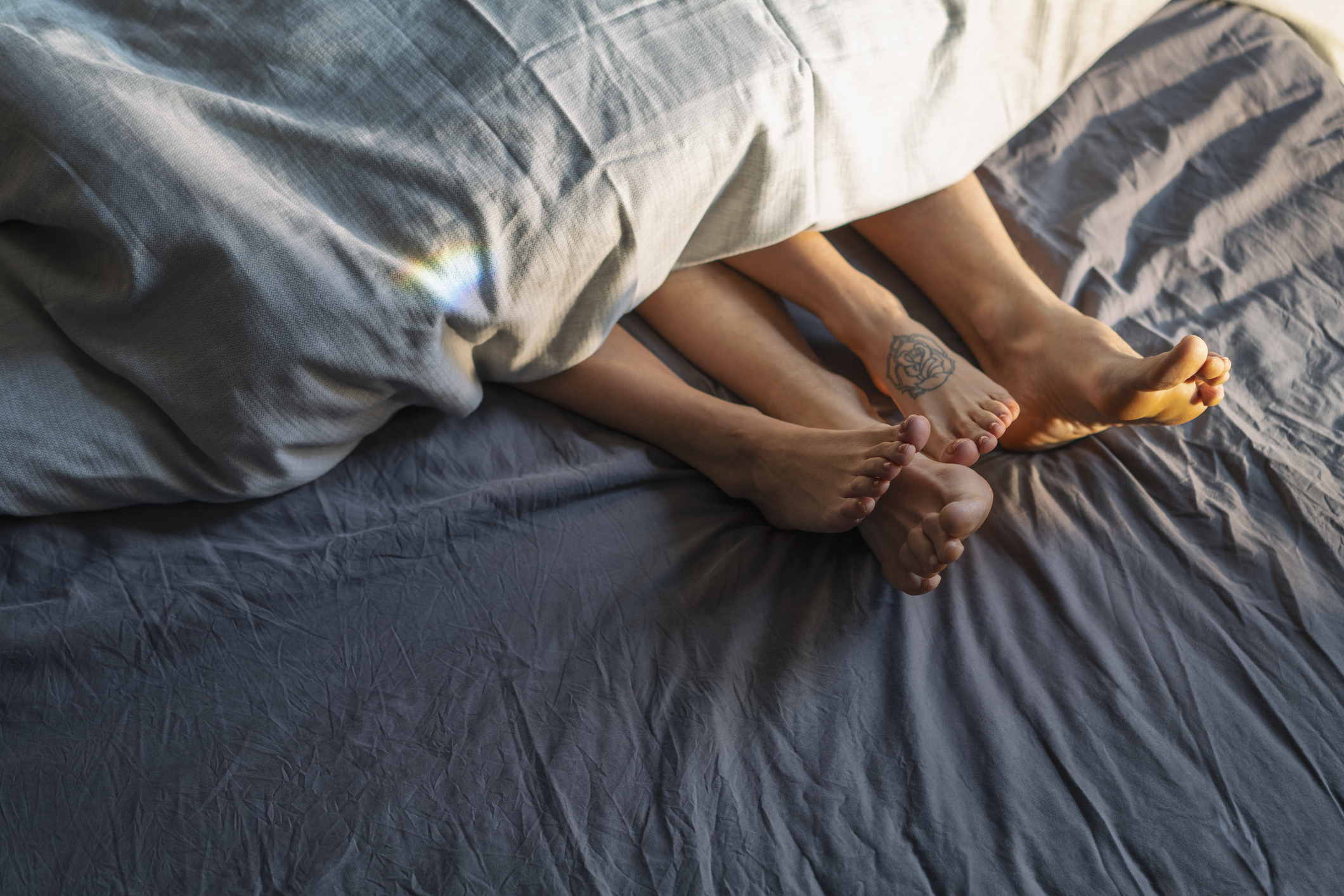So... how do you know if you have an STD? Two experts break it down for you
FYI, there are 30+ viruses, bacterias and parasites that can be transmitted through sexual contact.

FYI, there are 30+ viruses, bacterias and parasites that can be transmitted through sexual contact.
As England’s restaurants, clubs and rooftop bars reopen and restrictions easing, what experts are calling the 'summer of love' is in full swing and search for 'How do I know if I have an STD' rising - and fast.
With dating back on the cards and sex with someone outside of your household - finally! - legal again, we've bought you guides to what to talk about on a first date and how to make your dating profile stand out; the sauciest sex positions to try ASAP and a first person on the reality of love after lockdown, too.
Next up: not-so-sexy but definitely as important, our guide to how to know if you've got an STD. Much like knowing the best dating sites to find a partner on, clueing yourself up on what they are - and how to know if you're affected - is pretty important if you're sleeping with more than one partner regularly.
Keen to learn a little more about what an STD actually is, how you get one, and what the main risks are? Keep scrolling - you can even calculate your risk by using the handy new STI Calculator below.
What is an STD? The basic definition
According to Sarah Mulindwa, sexual health nurse, presenter of Channel 4’s The Sex Clinic and Lovehoney ambassador, STD is short for sexually transmitted disease.
But what are they? "STD's are infections spread from person to person during sex (vaginal, oral, or anal) or close intimate contact," she shares.
As Doctor Jess O'Reilly, sexologist and We-Vibe spokesperson, explains, while STD stands for sexually transmitted disease, STI stands for sexually transmitted infection. "The terms are often used interchangeably and the language was updated to STI (from STD) to reflect the fact that not all sexually transmitted infections will develop into a disease and many show no signs or symptoms," she explains.
Marie Claire Newsletter
Celebrity news, beauty, fashion advice, and fascinating features, delivered straight to your inbox!
Both warn that, if left untreated, STD's can spread and cause serious health problems for you and your sex partners.

How do you get an STD?
STD's are spread in a number of ways, including:
- Having unprotected (without a condom) vaginal, oral, or anal sex with someone who has an STD.
- During genital touching. FYI, it's possible to get some STDs, such as syphilis and herpes, without having sex, shares Mulindwa.
- Through sexual contact between women who have sex only with other women.
- From a pregnant or breastfeeding woman to her baby.
How do I know I have an STD? Main symptoms
Good question - and this is where it gets slightly complicated. According to O'Reilly, there are 30+ viruses, bacterias and parasites that can be transmitted through sexual contact. Some STIs show obvious symptoms, but others—not so much.
You could feel perfectly fine and yet have an underlying infection. The worst bit about this? If you don't know you have an infection, you're likely to spread it without even knowing.
"I recommend that people who are having sex (or who have had sex in the past) get regularly tested for STDs, to be safe," explains Mulindwa.
However, some symptoms do sometimes show, and the following signs could be an indicator of an STD:
- an unusual discharge from the vagina, penis or anus
- pain when peeing
- lumps or skin growths around the genitals or bottom (anus)
- a rash
- unusual vaginal bleeding
- itchy genitals or anus
- blisters and sores around your genitals or anus
- warts around your genitals or anus
- warts in your mouth or throat (this is very rare)
If there's any chance at all you have an STD, Mulindwa recommends you see your doctor.

What are the main risks of getting an STD?
And, in other words, can they cause long lasting damage if left untreated? Short answer: yes - that's why regular check ups are so important.
Plus, as Mulindwa explains, women often experience more serious health problems as a result of STDs than men.
"If left untreated, chlamydia and gonorrhoea raise the risk of chronic pelvic pain and life-threatening ectopic pregnancy and can also cause infertility, " she shares. "Plus, untreated syphilis in pregnant women results in infant death up to 40% of the time."
One of the most common? HPV. Do read up on the HPV symptoms in women, while you're here.
How do you treat an STD?
Common bacterial infections like syphilis, gonorrhoea, chlamydia and trichomoniasis can be cured with simple treatment, shares O'Reilly. That is, if you get tested and helped by a medical professional.
On the other hand, you have viral STIs like herpes, HIV and HPV. "These are treatable and manageable, but cannot be fully eradicated," she explains. Although, with the right treatment, symptoms can be greatly reduced or eliminated.

5 tips for anyone who thinks they may have an STD
1. Don't sweat it
See you GP and go from there, recommends O'Reilly. "STI's are more common than you think and many are treatable, so check in with your GP right away to get assessed and tested," she shares.
2. Try and ignore the stigma
Oftentimes, the worst symptom of STIs is the stigma, shares the sexologist.
"This is why it's important we continue to de-stigmatise STIs and consider them the way we look at other infections like the common cold or flu," she stresses. Got that?
3. Get tested - stat
Regardless of whether or not you think you have an STI, if you’re sexually active, testing is an important part of prevention, stress both experts.
"Symptoms may be mild in the short term, but if you leave STIs untreated, it can lead to more serious side effects including infertility, chronic pain, organ issues and in some cases, cancer. Seeking treatment can ensure that you live a long, healthy and high quality life," shares O'Reilly.
4. Stop having sexual contact
Sorry to break it to you, but if you have any doubt in your mind that you may have an STD, then you need to stop having sexual intercourse.
"Even if you haven't yet been diagnosed and treated by your GP, it's better to play it safe," advises Mulindwa.
5. Speak to your partner
Bottom line: you will have to tell your sexual partners if you do have an STD.
While you may not want to worry them until you've had it confirmed, it may take a weight off your shoulders sharing the worry. They should understand that these things happen, and the sooner they know, the sooner they can get treated -which is all a positive.
"Remember that their health is at risk too," shares Mulindwa. "They too need to know what's going on. It's natural to feel worried, embarrassed, and even scared, but to protect your partner, it's a conversation you need to have."

Ally Head is Marie Claire UK's Senior Health and Sustainability Editor, nine-time marathoner, and Boston Qualifying runner. Day-to-day, she heads up all strategy for her pillars, working across commissioning, features, and e-commerce, reporting on the latest health updates, writing the must-read wellness content, and rounding up the genuinely sustainable and squat-proof gym leggings worth *adding to basket*. She also spearheads the brand's annual Women in Sport covers, interviewing and shooting the likes of Mary Earps, Millie Bright, Daryll Neita, and Lavaia Nielsen. She's won a BSME for her sustainability work, regularly hosts panels and presents for events like the Sustainability Awards, and is a stickler for a strong stat, too, seeing over nine million total impressions on the January 2023 Wellness Issue she oversaw. Follow Ally on Instagram for more or get in touch.
-
 Penn Badgley and Blake Lively kept their breakup a secret from the Gossip Girl cast and crew - here's what we know about their former relationship
Penn Badgley and Blake Lively kept their breakup a secret from the Gossip Girl cast and crew - here's what we know about their former relationshipBy Jenny Proudfoot
-
 Spring has finally sprung - 6 best outdoor workouts that are totally free and boost both body and mind
Spring has finally sprung - 6 best outdoor workouts that are totally free and boost both body and mindSoak in the nature and boost Vitamin D *and* endorphins.
By Anna Bartter
-
 This iconic rose perfume is a compliment magnet—it makes me feel ‘put together’ after just one spritz
This iconic rose perfume is a compliment magnet—it makes me feel ‘put together’ after just one spritzGrown-up and elegant, yet not at all dated.
By Denise Primbet